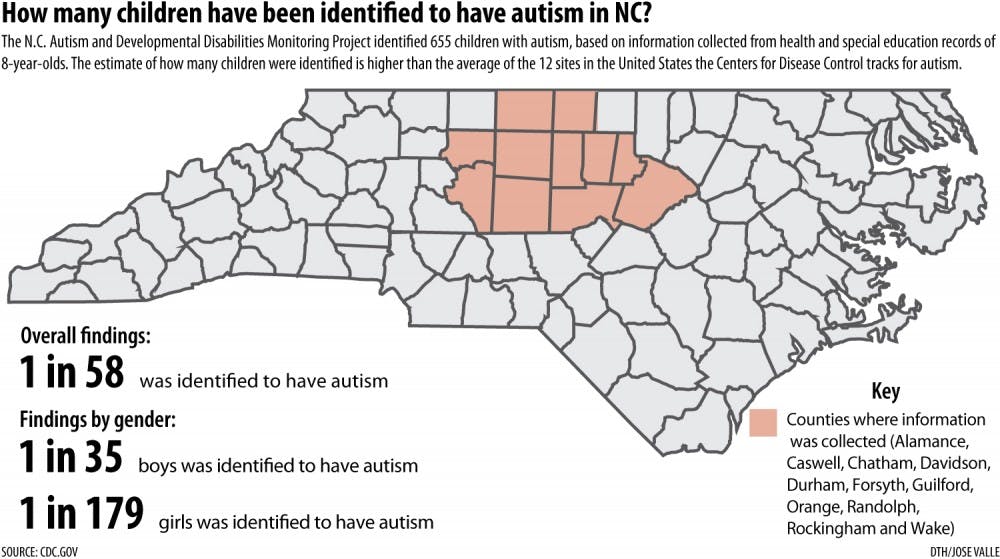Postdoctoral fellow Jason Yi researched the genetic cause for the enzyme with a team led by Mark Zylka, an associate professor of cell biology and physiology.
The enzyme, called UBE3A, showed up after researchers analyzed DNA from a child with autism and compared it with DNA from the child’s parents, who don’t have autism.
“It’s a housekeeping enzyme,” Yi said.
“So what it does is it goes around and tags proteins that your cells no longer need in order to get them out of the system.”
A switch in the brain regulates the release of UBE3A, Yi said.
When it is too active, UBE3A floods the brain and causes more proteins to be deleted.
“We really found the switch that your brain uses to make sure UBE3A activity doesn’t go too low or too high,” Yi said.
Yi started his research on the enzyme five years ago when looking into Angelman syndrome, another syndrome caused by UBE3A.




